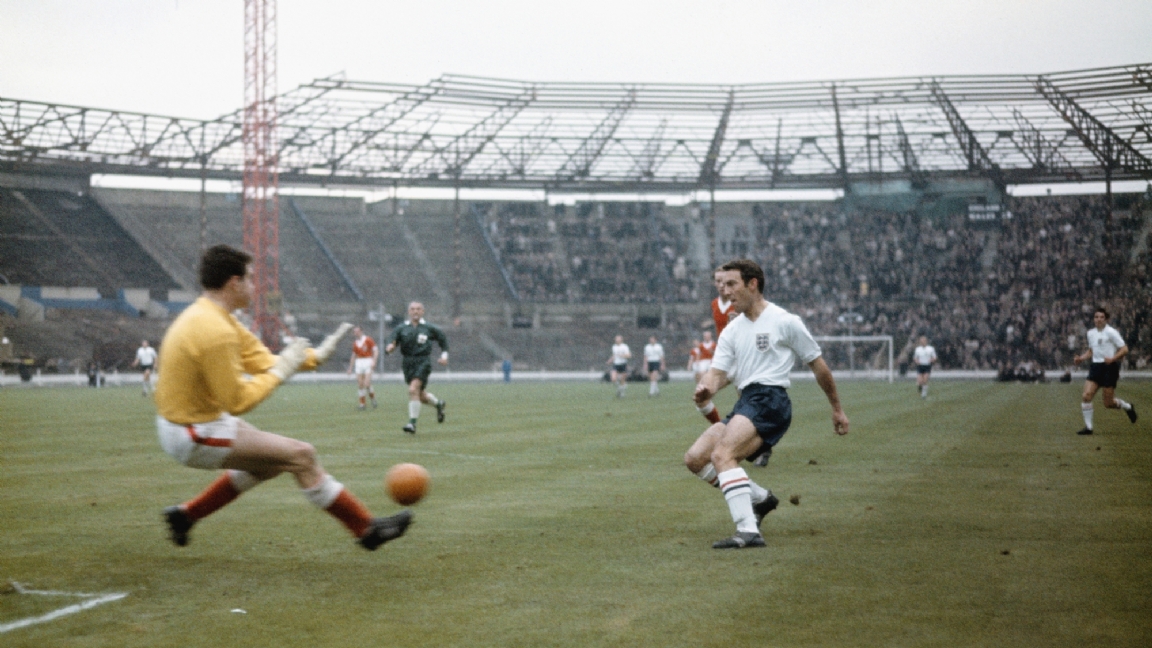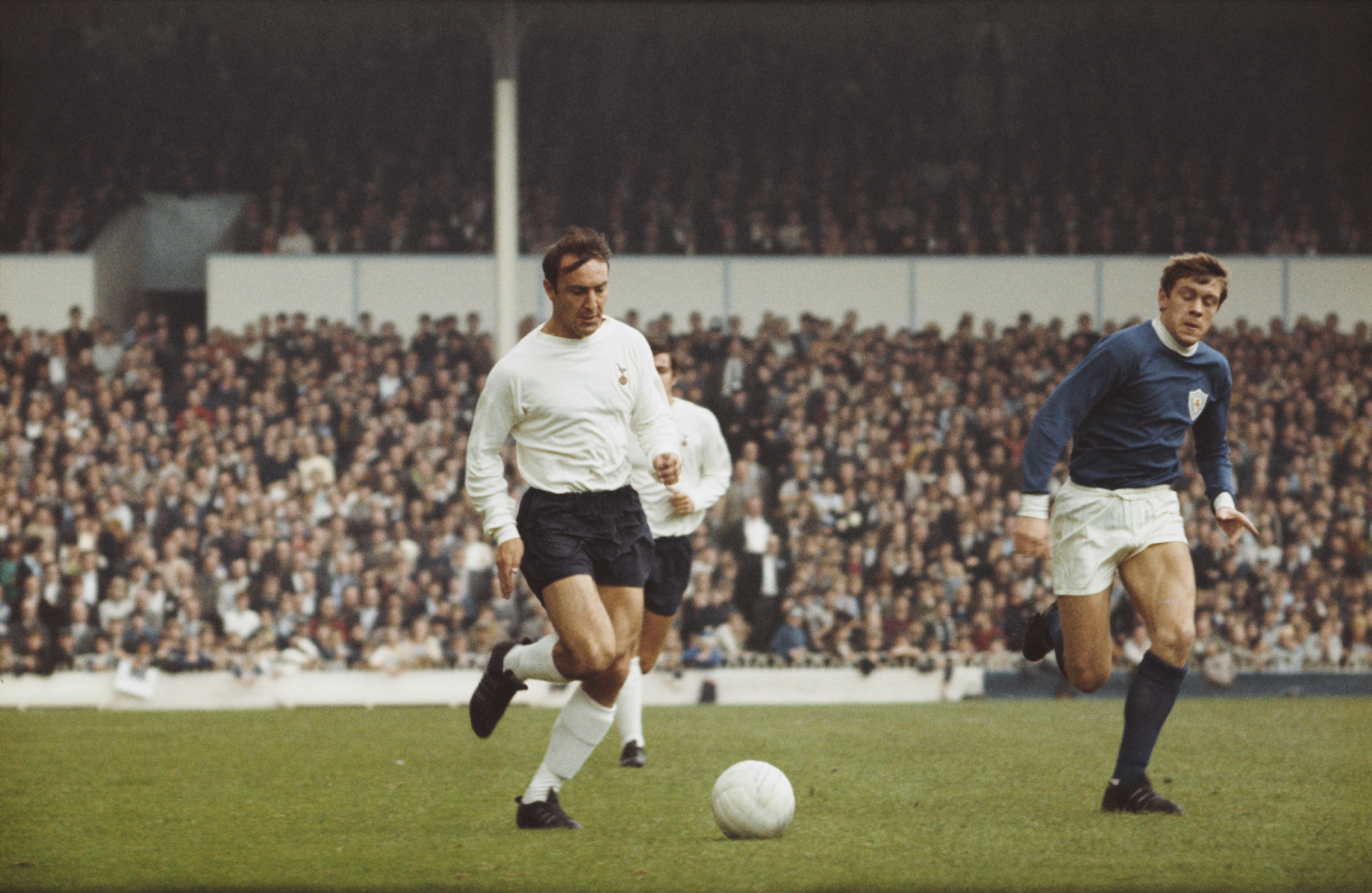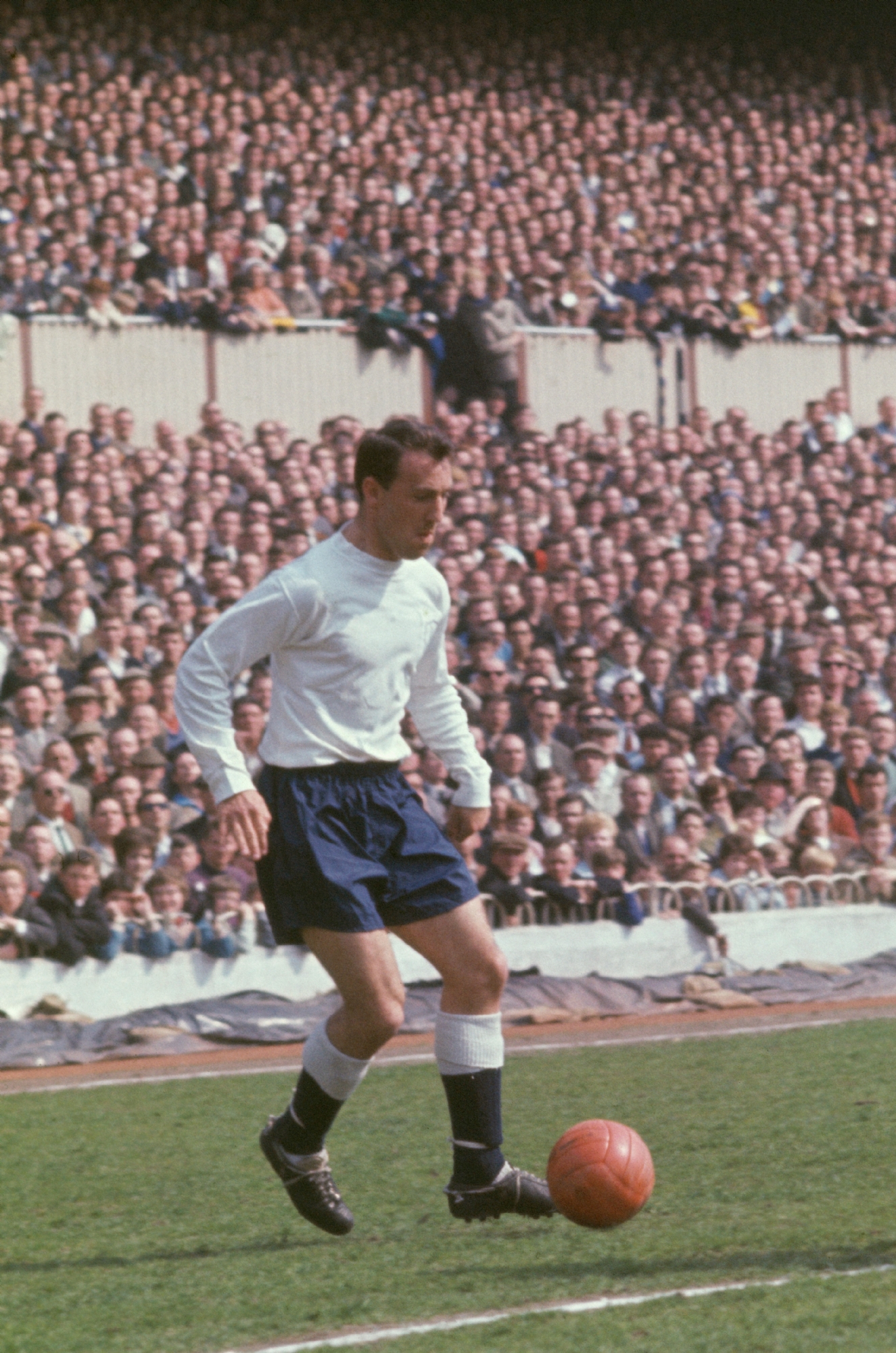

Jimmy Greaves passed away on Sunday morning, his former club Tottenham Hotspur said in a statement. The former attacker has turned 81 years old. He is known as one of the most successful English footballers of all time. Greaves passed away at home, leaving behind his wife Irene, four children, ten grandchildren and great-grandchildren.
Greaves played a total of 57 caps for England between 1959 and 1967, scoring 44 times. This makes him the number four on the eternal top scorers list after Gary Lineker (48), Sir Bobby Charlton (49) and Wayne Rooney (53) the Three Lions. Greaves became world champion with England in 1966. He is also Tottenham Hotspur’s all-time top scorer with 266 official goals scored between 1961 and 1970. He was known for his coolness in front of goal, as well as his dribbling, sprinting speed and acceleration. The former striker started his professional career at Chelsea, for which he was good for 169 official games and 132 goals between 1957 and 1961.

Greaves was subsequently signed by AC Milan in 1961. He was paid £140 a week in Italy and received a £15,000 signing bonus. Greaves changed his mind after signing the contract: he did not want to leave London, but AC Milan coach Giuseppe Viani demanded that the transfer go ahead. Although he scored in his debut game, Greaves was not happy in Milan. In a match against Sampdoria, he even kicked a player who spat at him; Sampdoria scored from the ensuing free kick, after which new head coach Nereo Rocco blamed Greaves, despite the Englishman scoring and assisting earlier in the game. The incident contributed to his bad mood in Milan.
Despite Greaves being signed for three seasons, he was allowed to leave Milan after his first season. Tottenham Hotspur and his former club Chelsea both made bids. The choice fell on Tottenham, who paid £99,999; this was to spare Greaves the pressure that came with becoming the first ever player in British football to earn a £10,000 transfer fee. Over the next nine years, he became the club’s all-time top scorer, winning the FA Cup twice, the Charity Shield (the predecessor to the Community Shield) twice and the European Cup II once.
?? – @SpursOfficial and @England Legend Jimmy Greaves???????????????? passed away at the age of 81 3?5?7? top flight goals (all-time record) 2?6?6? goals for Spurs (all-time record) 4?4? goals in 57 caps 6? times English 1st tier top scorer (all-time record) ?? 1966 World Cup#JimmyGreaves
— Gracenote Live (@GracenoteLive) September 19, 2021
Greaves left for West Ham United in 1970, a transfer he later admitted to regret; he struggled with his fitness and motivation. A memorable incident occurred in January 1971, when Geaves, along with teammates Bobby Moore, Brian Dear and Clyde Best, drank alcohol on the eve of an FA Cup game against Blackpool. The players were told by journalists that the match would probably be canceled due to predicted frost. Greaves drank twelve beers in a nightclub and returned to the players’ hotel at 1:45 a.m., assuming he wouldn’t have to play football the next day. The match went ahead anyway; West Ham lost 4-0. Greaves claimed afterwards that the defeat was not due to the drinking of the foursome, but because West Ham was simply not good enough as a team.
The players involved were then fined and removed from the squad. Towards the end of his time at West Ham, Greaves began to drink more and more; after training, he went straight to the cafe, where he stayed until closing time. Greaves later admitted that he was in an early stage of alcoholism. Despite this, Greaves scored nine goals at the highest level in his last season. Including his time at Milan, he finished with 366 goals in the top five European competitions, a record only broken in 2017 by Cristiano Ronaldo. Greaves gained weight after his career and was not seen as a spectator at competitions for two years. He continued to struggle with an alcohol addiction: Greaves sometimes drank twenty beers during the day and a bottle of vodka in the evening, he later admitted. Greaves was also regularly intoxicated behind the wheel.

The Englishman wanted to improve his life and started playing football at a lower level in 1975, at the age of 35. Greaves nevertheless continued to struggle with alcohol use and delirium tremens, a disorder that occurs as a withdrawal symptom of alcohol addiction. He sought help from Alcoholics Anonymous and was hospitalized. Greaves nevertheless resumed his amateur career, scoring 25 goals for Barnet in the 1977/78 season as a midfielder, where he was voted Player of the Year. He stopped drinking around his football retirement in 1980 and Greaves has remained sober ever since. After his career, Greaves had a television program with former pro Ian St John between 1985 and 1992, in which they analyzed matches, and he worked on other football programs.
Greaves had a starting spot in all group matches at the 1966 World Cup, but got the studs on his shin from Joseph Bonnel in the last group match against France. It resulted in a wound that required 14 stitches and left a permanent scar. His replacement Geoff Hurst scored in the quarter-final against Argentina and kept a starting spot for the remainder of the tournament, despite Greaves being fit enough to play in the final. At the time, only the eleven players who were on the field at the end of the final received a medal. That changed after the 1974 World Cup, but the English Football Association FA campaigned in 2009 to get FIFA to award all World Cup selection players with retroactive medals. FIFA agreed, as a result of which Greaves received a medal from then Prime Minister Gordon Brown in 2009.
Greaves’ health has deteriorated in recent years. In 2012, he suffered a TIA, after which he had to undergo surgery on his neck. Although Greaves made a full recovery, he suffered a heart attack in 2015. Greaves was hospitalized for a month and spent the rest of his life in a wheelchair. Greaves, who received a testimonial from Tottenham Hotspur in October 1972 in a game against Feyenoord (2-1 win) in front of more than 45,000 fans at White Hart Lane, is described by the London club as ‘the finest marksman this country has ever seen’, or: the best marksman in English history. The club is heartbroken by the legend’s passing. “Football will never see someone like Greaves again.”